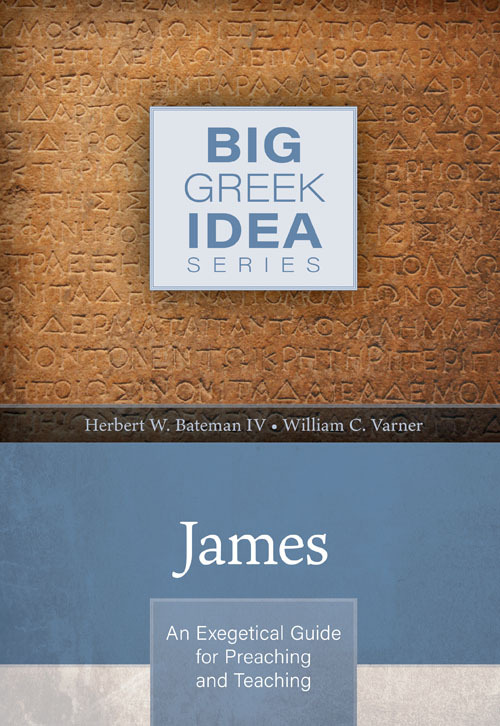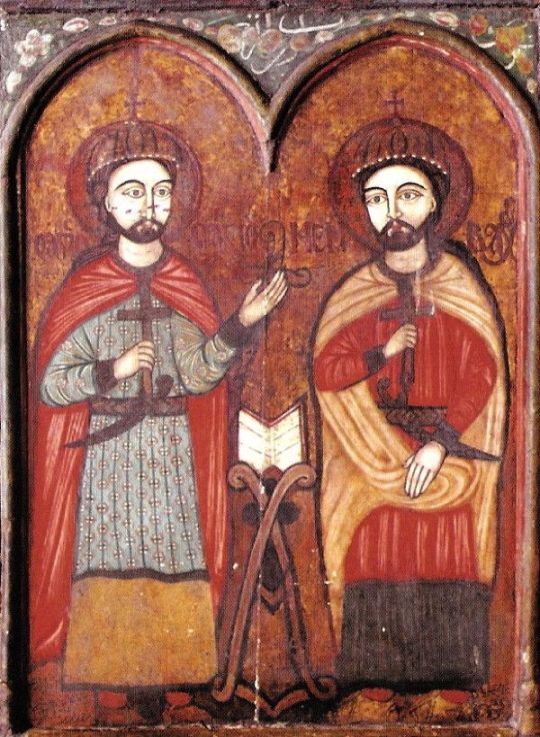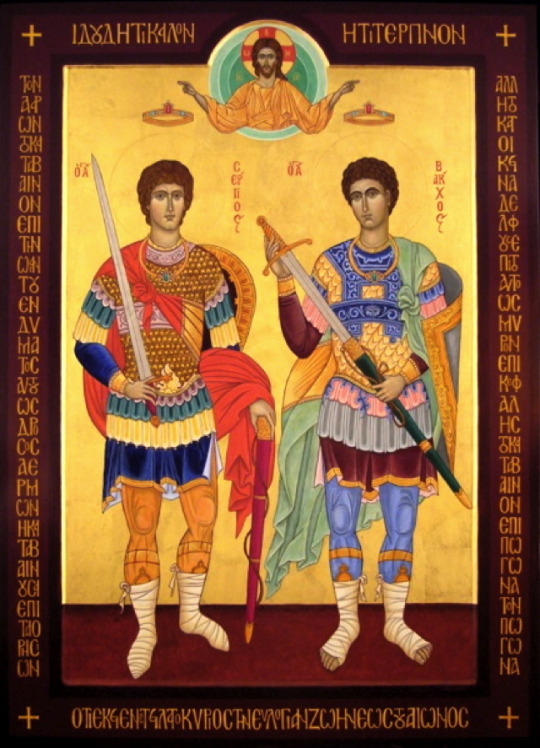#epistles of john
Text
Believe, Love, and Obey (1 John 5:1-12)
Faith, love, and obedience are words so tightly woven together, that to pull one of them out, is to unravel the whole bunch.
Everyone who believes that Jesus is the Christ is born of God, and everyone who loves the father loves his child as well. This is how we know that we love the children of God: by loving God and carrying out his commands. In fact, this is love for God: to keep his commands. And his commands are not burdensome, for everyone born of God overcomes the world. This is the victory that has overcome the…

View On WordPress
#1 john 5#apostle john#believe#christian faith#christian life#christian spirituality#christian virtue#christianity#cross of christ#epistles of john#faith#fear#first john#god&039;s commands#god&039;s love#jesus christ#love#love one another#love your neighbor#loving god#obedience#obedient#obey#obeying god#overcoming#the world#trust#trusting god
0 notes
Text
Herbert Bateman and William Varner, James: An Exegetical Guide
Herbert Bateman and William Varner, James: An Exegetical Guide @KregelAcademic -
Bateman IV, Herbert W. and William C. Varner. James: An Exegetical Guide for Preaching and Teaching. Big Idea Greek Series. Grand Rapids, Mich. Kregel, 2022. 317 pp. Hb; $33.99. Link to Kregel Academic.
This new entry in Kregel Academic’s Big Greek Idea Series joins volumes on Ephesians, Philippians, and John’s Letters. The series is designed as an exegetical guide for busy pastors, overloaded…

View On WordPress
0 notes
Text

Walking in the Light
If we say that we have fellowship with him and walk in the darkness, we lie and don’t tell the truth. But if we walk in the light as he is in the light, we have fellowship with one another, and the blood of Jesus Christ his Son, cleanses us from all sin.
— 1 John 1:6-7 | World English Bible, American English Edition, without Strong's Numbers (WEBUS)
The World English Bible, American English Edition (without Strong's Numbers) is in the public domain.
Cross References: Psalm 51:2; Isaiah 2:5; Isaiah 6:7; Isaiah 33:24; Matthew 6:12; John 3:21; John 8:12; John 8:55; John 12:35; 2 Corinthians 6:14; 1 Timothy 6:16; Titus 2:14; 1 John 2:4; 1 John 2:11
#fellowship#darkness#dishonesty#walking#light#blood#Jesus#Son of God#purity#sins#cleansed#unity#1 John 1:6-7#The Epistle of First John#WEBUS#World English Bible: American Edition
12 notes
·
View notes
Text
Shout out to all the girlies whose Spotify top songs of the year won’t be accurate because it doesn’t count the number of times you’ve listened to an unreleased concept album about organ harvesters on the moon because it’s makers refuse to put it on streaming services
341 notes
·
View notes
Photo

From the first letter of John (1 John 1)
35 notes
·
View notes
Text
Excerpt from an untitled poem Lord Byron sent to his publisher John Murray, which has never been officially published due to profanity — 8 January 1818, Venice:
12.
Now, I'll put out my taper
(I've finished my paper
For these stanzas you see on the brink stand)
There's a whore on my right,
For I rhyme best at night
When a Cunt is tied close to my Inkstand.
13.
It was Mahomet's notion
That comical motion
Increased his "devotion in prayer"—
If that tenet holds good
In a Prophet, it should
In a poet be equally fair.—
14.
For, in rhyme or in love
(Which both come from above)
I'll stand with our "Tommy" or "Sammy"
But the Sopha and lady
Are both of them ready
And so, here's "Good Night! and God dammee to you dammee!”
source: “BYRON’S CORRESPONDENCE AND JOURNALS 10: FROM VENICE, JANUARY 1818-JUNE 1819” Edited by Peter Cochran
#Tommy/Sammy = poets Thomas Moore & Samuel Rogers#inkstand = dick#byron often joked that his dick was his pen#see: epistle to mr murray & beppo#that comical motion#lord byron#poetry#writing#wit#funny#or not#the romantics#romanticism#english romanticism#english literature#literature#the geneva squad#venice#john murray#poem#byron#chaotic academia#funny academia#bawdy academia#georgian era#19th century#early 19th century#european literature
26 notes
·
View notes
Text
"Beloved, I hope you are prospering in every respect and are in good health, just as your soul is prospering."~ 3 John 1:2, NABRE
33 notes
·
View notes
Photo

"BTS resemblance and height over 180cm" Ryu Jin, storm growth Two sons boast (Okmunah)
Source: k-star-holic.blogspot.com
2 notes
·
View notes
Photo

φόβος οὐκ ἔστιν ἐν τῇ ἀγάπῃ, ἀλλ’ ἡ τελεία ἀγάπη ἔξω βάλλει τὸν φόβον, ὅτι ὁ φόβος κόλασιν ἔχει, ὁ δὲ φοβούμενος οὐ τετελείωται ἐν τῇ ἀγάπῃ.
There is no fear in love; but perfect love casteth out fear: because fear hath torment. He that feareth is not made perfect in love.
—First Epistle of John 4:18
[Scott Horton]
9 notes
·
View notes
Text
Bible Study - March 13, 2024
3 John 1:1-15
#John #epistle #letter #Gaius #friend #love #truth #teacher #travel #support #joy #faithful #God #Jesus #pleasing #Lord #influence #Diotrephus #church #Demetrius #peace
youtube
View On WordPress
#3 John#church#Demetrius#Diotrephus#epistle#faithful#friend#Gaius#God#influence#Jesus#John#joy#letter#Lord#love#peace#pleasing#support#teacher#travel#truth#Youtube
0 notes
Text
To the Family of God (2 John 1:1-16)
“No one can have God as Father who does not have the church as Mother.” St. Cyprian
St. John the Apostle, by sculptor Thomas Ball (1819-1911)
From the Elder—
To the dear Lady and to her children, whom I truly love. And I am not the only one, but all who know the truth love you, because the truth remains in us and will be with us forever.
May God the Father and Jesus Christ, the Father’s Son, give us grace, mercy, and peace; may they be ours in truth and love.
How happy I was…

View On WordPress
#2 john#apostle john#christian fellowship#christian hope#christian life#christian love#christian ministry#christian service#christianity#christians#church#church dynamics#church life#church ministry#deceit#deceiver#epistles of john#false teaching#happiness#hope#love#love one another#mother church#pastoral ministry#spiritual care#spiritual community#spiritual connection#spiritual family#spiritual life#the church
0 notes
Text
The John Schroeder Orchestra – The Dolly Catcher (1967)
0 notes
Text

Testing the Spirits
1 Beloved, do not believe every spirit [speaking through a self-proclaimed prophet]; instead test the spirits to see whether they are from God, because many false prophets and teachers have gone out into the world. 2 By this you know and recognize the Spirit of God: every spirit that acknowledges and confesses [the fact] that Jesus Christ has [actually] come in the flesh [as a man] is from God [God is its source]; 3 and every spirit that does not confess Jesus [acknowledging that He has come in the flesh, but would deny any of the Son’s true nature] is not of God; this is the spirit of the antichrist, which you have heard is coming, and is now already in the world. 4 Little children (believers, dear ones), you are of God and you belong to Him and have [already] overcome them [the agents of the antichrist]; because He who is in you is greater than he (Satan) who is in the world [of sinful mankind]. 5 They [who teach twisted doctrine] are of the world and belong to it; therefore they speak from the [viewpoint of the] world [with its immoral freedom and baseless theories—demanding compliance with their opinions and ridiculing the values of the upright], and the [gullible one of the] world listens closely and pays attention to them. 6 We [who teach God’s word] are from God [energized by the Holy Spirit], and whoever knows God [through personal experience] listens to us [and has a deeper understanding of Him]. Whoever is not of God does not listen to us. By this we know [without any doubt] the spirit of truth [motivated by God] and the spirit of error [motivated by Satan].
God Is Love
7 Beloved, let us [unselfishly] love and seek the best for one another, for love is from God; and everyone who loves [others] is born of God and knows God [through personal experience]. 8 The one who does not love has not become acquainted with God [does not and never did know Him], for God is love. [He is the originator of love, and it is an enduring attribute of His nature.] 9 By this the love of God was displayed in us, in that God has sent His [One and] only begotten Son [the One who is truly unique, the only One of His kind] into the world so that we might live through Him. 10 In this is love, not that we loved God, but that He loved us and sent His Son to be the propitiation [that is, the atoning sacrifice, and the satisfying offering] for our sins [fulfilling God’s requirement for justice against sin and placating His wrath]. 11 Beloved, if God so loved us [in this incredible way], we also ought to love one another. 12 No one has seen God at any time. But if we love one another [with unselfish concern], God abides in us, and His love [the love that is His essence abides in us and] is completed and perfected in us. 13 By this we know [with confident assurance] that we abide in Him and He in us, because He has given to us His [Holy] Spirit. 14 We [who were with Him in person] have seen and testify [as eye-witnesses] that the Father has sent the Son to be the Savior of the world.
15 Whoever confesses and acknowledges that Jesus is the Son of God, God abides in him, and he in God. 16 We have come to know [by personal observation and experience], and have believed [with deep, consistent faith] the love which God has for us. God is love, and the one who abides in love abides in God, and God abides continually in him. 17 In this [union and fellowship with Him], love is completed and perfected with us, so that we may have confidence in the day of judgment [with assurance and boldness to face Him]; because as He is, so are we in this world. 18 There is no fear in love [dread does not exist]. But perfect (complete, full-grown) love drives out fear, because fear involves [the expectation of divine] punishment, so the one who is afraid [of God’s judgment] is not perfected in love [has not grown into a sufficient understanding of God’s love]. 19 We love, because He first loved us. 20 If anyone says, “I love God,” and hates (works against) his [Christian] brother he is a liar; for the one who does not love his brother whom he has seen, cannot love God whom he has not seen. 21 And this commandment we have from Him, that the one who loves God should also [unselfishly] love his brother and seek the best for him.
— 1 John 4 | Amplified Bible (AMP)
The Amplified Bible Copyright © 2015 by The Lockman Foundation. All rights reserved.
Cross References: Genesis 22:2; Leviticus 19:18; 1 Kings 13:18; Jeremiah 14:14; Matthew 5:43; Matthew 9:34; Matthew 10:15; Matthew 24:5; John 1:14; John 1:18; John 3:16; John 3:31; John 6:51; John 6:56; John 6:69; John 8:23; John 8:32; John 8:47; John 9:3; John 15:27; John 12:31; John 12:34; John 13:35; Romans 8:9; Romans 8:15; Romans 8:31; Romans 10:9; 1 Corinthians 8:3; 1 Corinthians 12:3; 2 Thessalonians 2:3; 1 Timothy 6:16; 1 Peter 1:8; 1 John 1:1-2; 1 John 2:3; 1 John 2:5; 1 John 2:7; 1 John 3:1; 1 John 3:10-11; 2 John 1:5
#testing the spirits#believers#knowledge#God#love#Spirit of Truth#1 John 4#The Epistle of First John#New Testament#AMP#Amplified Bible#The Lockman Foundation
12 notes
·
View notes
Text
If we say that we have fellowship with him, and walk in darkness, we lie, and do not the truth.
1 John 1:6 kjav
#christianity#judaeo christian#the holy bible king james authorised version#bible verses#the first epistle general of john
0 notes
Text
favourite poems of february
avery r. young peestain
claudine toutoungi future perfect
david rivard bewitched playground: "not guilty"
brian kim stefans the future is one of place
lisa gill post-traumatic rainstorm
clare pollard pinocchios
rebecca lindenberg love, an index: "catalogue of ephemera"
etel adnan the arab apocalypse: "xxxvi"
stanley moss god breaketh not all men's hearts alike: "a blind fisherman"
robert browning an epistle containing the strange medical experience of karshish, the arab physician
tom sleigh beirut tank
khaled mattawa ismailia eclipse: "date palm trinity"
mark levine unemployment (3)
lucia cherciu butter, olive oil, flour
reginald shepherd fata morgana: "you, therefore"
john updike claremont hotel, southwest harbour, maine
bruce smith the other lover: "february sky"
johnny cash forever words: the unknown poems: "don't make a movie about me"
eamon grennan what light there is & other poems: "jewel box"
eduardo c. corral in colorado my father scoured and stacked dishes
thomas mccarthy the beginning of colour
divya victor curb: "blood / soil"
henneh kyereh kwaku in praise
joanna fuhrman to a new era: "lavender"
rosemary catacalos sight unseen
sam willetts digging
megan fernandes winter
jaswinder bolina the plague on tv
juan felipe herrera notes on the assemblage: "almost livin' almost dyin'"
kofi
#tbr#tbr list#february#poem#poems#poetry#poet#poets#avery r young#peestain#avery r. young#claudine toutoungi#future perfect#brian kim stefans#the future is one of place#david rivard#not guilty#bewitched playground#lisa gill#post-traumatic rainstorm#clare pollard#pinocchios#juan felipe herrera#almost livin almost dyin#almost livin' almost dyin'#notes on the assemblage#johnny cash#don't make a movie about me#forever words#forever words: the unknown poems
185 notes
·
View notes
Text
Since I've spent the last month-plus neck-deep in queer Christian history research, I ended up with some thoughts™️ about "classical" Western homoeroticism vs. Christian homophobia.
Liberal Christian apologetics sometimes do a very annoying thing when asked to explain the homophobia in the New Testament epistles. Because it's real, it's there, and homophobic Christians take it as the Unquestionable Word of God. So obviously we have to do something about it.
The liberal explanation tends to go something like this: "the epistle writer is talking about the abusive and exploitative homosexual acts that were common in ancient Rome, not the loving/egalitarian/mutually respectful relationships that gay people are able to have today." And it's so frustrating because there is SOME truth in this. We and Paul both know that the Greeks and Romans were notorious pederasts and slave-abusers. And that's bad! It's super bad. I do agree that Paul/the epistle writer is condemning abusive behavior using language and frameworks that would have been available to him at the time. Deciphering the social context of the epistles can get messy.
But the annoying thing is this: it is not affirming to suggest that all gay people in the past were either abusers or their victims, and "we're more enlightened now" is a lie. We are not smarter than the Greeks. We are not more civilized than the Romans. We are not more pious than the medievals. (Hello there, Roman Catholic sex abuse scandals.) And there have always been gay people who have defied all odds to have loving, egalitarian, and mutually respectful relationships with each other, even if we do not know their stories or their struggles.
This is kind of the crux of John Boswell's "controversial" thesis: gay people have always existed, even if they had to conceal themselves and their relationships behind various protective structures. (I actually haven't read any of his books yet, so I'm not going to engage too deeply with the nuances of his arguments.) When people try to dismiss him, I suspect it's because they don't notice or appreciate what he probably noticed. I have a hunch that Boswell's arguments are not super intersectional and focus mostly on the privileged sphere of people who left written records in the Middle Ages, but hey, serious LGBTQ Christian history research has to start somewhere. I'll withhold judgment for now. But I do think he was totally right about one thing: Saints Sergius and Bacchus. They were totally a gay couple until somehow proven otherwise, IMO. The reason I think he was right is because he was able to notice the "classical" aesthetics of homoeroticism in their legend even though it might not obvious to people who don't know what they're looking for. Straight people reading the legend are like "there's nothing gay about this" and gay people are like "wow, this story is pretty gay."
If you've ever looked into Western gay history, you've seen two words: erastes and eromenos. This means "lover" and "beloved," the two sides of a classical Greek pederastic relationship. The Greeks did actually recognize an age of consent and had ideals of proper behavior that regulated these relationships, but these were still usually relationships between a teenage boy and an older man, which isn't great. They also had all kinds of weird ideas about the politics of penetration and so forth. The Greeks and Romans didn't really think that two people could really be equal to each other--in any relationship, there was always one who was sort of subordinate to the other. So it was "weird" for two social equals to be in a gay relationship, as opposed to one with one partner who was already "established" and was "showing the ropes" to a younger guy who needed some wholesome manly instruction. We may not be better, smarter, or more enlightened than people in the past, but we do have the ability to critique them and try to identify the harmful behaviors that we've inherited from them, so we can do better. We've come a long way since the days of erastes/eromenos relationships, but one thing has stuck around: the classical aesthetics of a "manly guy" and an "idealized youth" in love with each other.
Apropos of nothing, here's a photo of John Boswell and his longtime partner Jerry Hart. They were within a year of being the same age.

So anyway, this brings us back to the legend of Sergius and Bacchus. The version that Boswell translated takes great pains to show how Sergius and Bacchus were equals in every way. They're both Roman officers, they're about the same age, they sing in unison, and are united in the egalitarian love of Christ. However, they are still just a little bit unequal. Sergius is of a slightly higher rank than Bacchus.
To be clear, this whole legend is a literary creation, and it's got a bunch of Byzantine propaganda in it. It's not history, it's mythology. Whoever wrote it down would have been familiar with erastes/eromenos dynamics, because these were everywhere in classical antiquity. So they made sure to specify all the ways in which Sergius and Bacchus were equals, but took a firm position in ye olde fandom top/bottom discourse.
Throughout the legend, Sergius acts, and Bacchus is acted upon. Bacchus is killed first, and Sergius is temporarily demoralized. Bacchus then appears to Sergius in a vision encouraging him to stay strong. Sergius is so steadfast that they can't torture him enough to make him recant his faith, and he is beheaded. Even straight couples are not usually said to have been reunited in heaven, but Sergius and Bacchus are.
So, knowing that Sergius is the erastes and Bacchus is the eromenos in this story, we can start to notice it in iconography too. It's not always consistent, but sometimes icons will have Sergius' cloak curling protectively over Bacchus' head, or one of them taking a slightly more "authoritative" posture, etc.


Above all, they are always depicted as true equals--sometimes they almost look like twins.



Increasingly, modern icons are being made that explicitly communicate the idea that they were a gay couple. The one on the left was created by Robert Lentz, a Franciscan friar, for Chicago Pride in 1994. The one on the right makes the classical homoerotic aesthetic super explicit, and is by far the most sexually-suggestive "traditional-style" icon I have ever seen lol. Shoutout to this artist.


So to sum up: John Boswell knew what the fuck he was talking about. Also, none of this excuses the homophobia in the Christian scriptures or the homophobia that Christians continue to perpetuate. However, knowing what to look for in art and writing helps us understand that gay people were not magically granted the ability to have egalitarian relationships in the modern world, and THAT leads us away from problematic apologetics.
761 notes
·
View notes